With the Senate tax bill securing passage late Friday night, the Republican tax bills now move to a conference committee tasked with resolving the differences between the House and Senate. One of the challenges: reconciling proposed changes to the child tax credit, a provision central to both plans. During a CNN debate on tax reform last week, a single mother of four earning $23,000 a year asked Senator Tim Scott (R-S.C.) how the Senate Tax Cuts and Jobs Act will help families like hers. Scott responded by touting the Senate plan to double the current child tax credit. “Our goal in this tax reform conversation is to deliver your money back in your paychecks,” he said.
President Trump has celebrated the expanded child tax credit and proposed Family Flexibility Credit as part of a Republican effort “targeting relief to working families.” Republicans, he promised, would ensure that benefits are “focused on the middle class, the working men and women, not the highest-income earners.” When asked how the House tax plan guarantees a tax cut for all middle-class families, House Speaker Paul Ryan replied “that’s the entire purpose of this.”
It’s technically true that under the House and Senate plan, families across the income distribution stand to benefit from a tax break. Analysis from the Tax Policy Center finds that under the House plan, families in the bottom income quintile would see a tax cut of $30 while families in the second-lowest income quintile would receive a $320 tax cut. Similarly, the Senate plan gives families in the bottom quintile a $90 tax cut and families in the second-lowest quintile a $650 cut.
The benefits under the Republican plans largely accrue to well-off American families, however. In both bills, families in the top income quintile would receive over 60 percent of the proposed tax cuts.
An expanded child tax credit was supposed to deliver substantial tax relief to families in lower quintiles. But many of these families pay more in payroll taxes than in income taxes, and the proposed child credit did little to lighten their burden. To address this problem, an amendment to the Senate bill crafted by Marco Rubio (R-Fla.) and Mike Lee (R-Utah) would have allowed the child tax credit to offset payroll as well as income tax liabilities. They proposed to pay for this expansion by setting the corporate tax cut at 20.94 percent (down from today’s 35 percent) rather than the 20 percent called for in the House and Senate bill.
Sen. Rubio characterized his amendment as an effort at “pro-growth” and “pro-worker” tax reform. “If we’re not even willing to do something as small as this, we’re not willing to anything for working people in this country,” Rubio declared moments before the vote. The amendment won the support of less than half the Republican caucus. For their part, Democrats, knowing the Senate bill had the votes needed to pass, rejected a chance to make the Senate tax plan marginally better for millions of Americans. Urging his Democratic colleagues to vote down the amendment, Sen. Ron Wyden (D-Ore.) argued that “Rubio and Lee stop far short of meaningful relief for millions of vulnerable American families.” Only eight, mostly moderate, Democrats ended up supporting the amendment.
The failure of the Rubio-Lee amendment leaves only slight differences between the child tax credit proposals in the House and Senate. No matter how these differences are reconciled, benefits for families below the top will be modest at best. And farther down the road, the outcome for these families could be worse.
Here’s why: In both the House and Senate bills, the corporate tax cuts would be permanent. But to comply with Senate budget rules, the Senate bill sunsets individual tax provisions—including the child tax credit—in 2025. For its part, the House terminates a portion of the child tax credit—the $300 Family Flexibility Credit—in 2022. These provisions mean that by 2027, under both the House and Senate plans, families in the two bottom income quintiles would face a tax increase.
Republicans have assured voters there is no reason to worry. Treasury Secretary Steven Mnuchin recently stated, “We have every expectation that down the road that Congress will extend them.” OMB Director Mick Mulvaney struck a similar tone on NBC’s Meet the Press. “One of the ways to game the system is to make things expire. This is done more to force, to shoehorn the bill into the rules than because we think it’s good policy.” Republican senators, including Ted Cruz (R-Texas), John Thune (R-S.D.), and Pat Toomey (R-Pa.), have expressed a desire to make the individual tax cuts permanent.
Whether fiscal and political circumstances in the next presidency would permit such an extension is anybody’s guess. Low-income and working-class families had better not count on it.



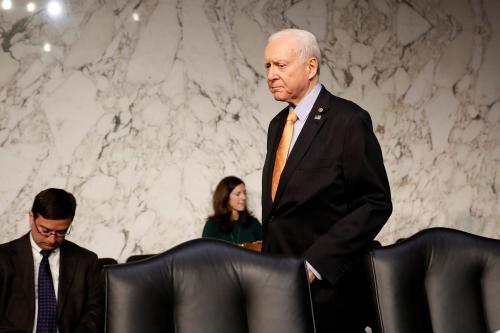
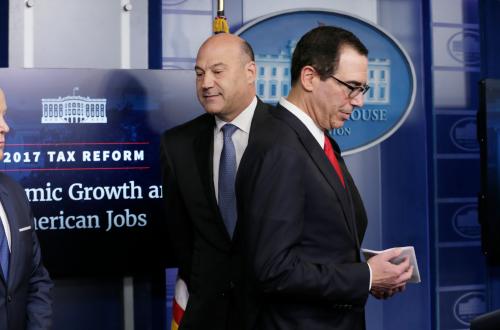



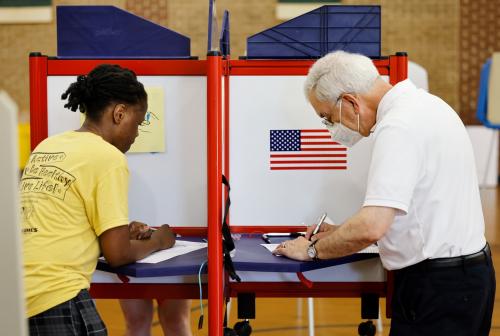
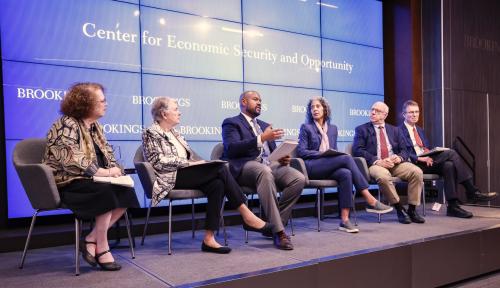
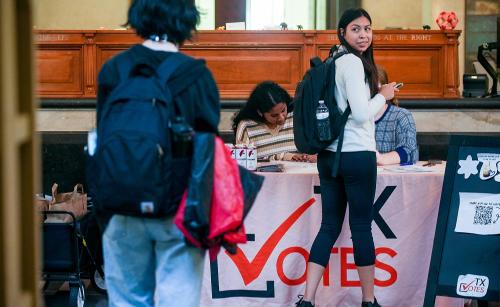
Commentary
Republicans’ empty promises on the Child Tax Credit
December 7, 2017